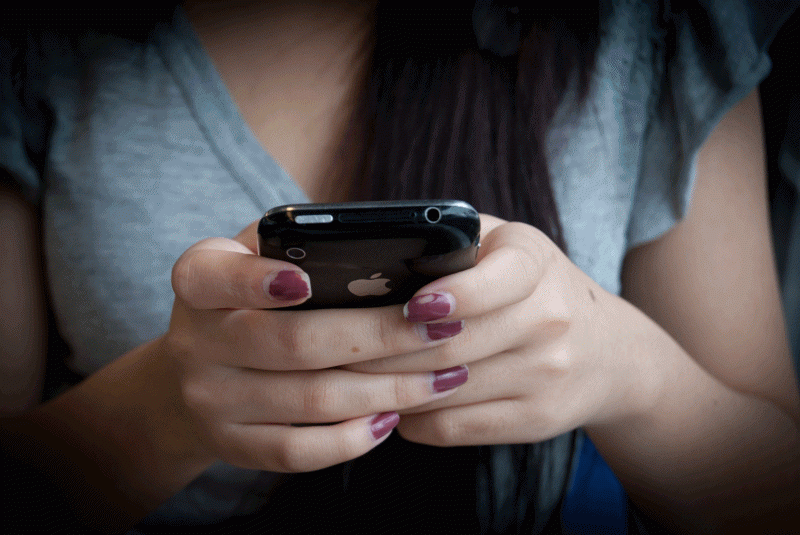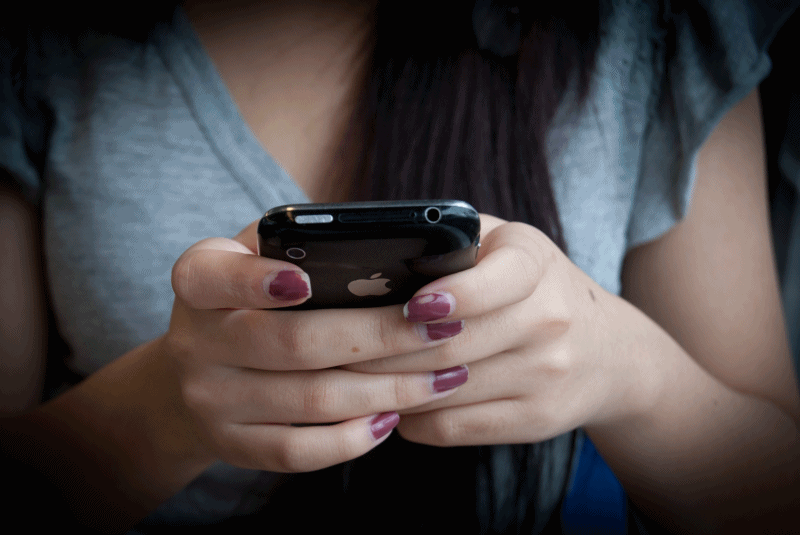Texting linked to poor grades, sleeping problems


By Christine Kim,
Bluedevilhub.com Staff–
A new study published by the American Psychology Association suggests that texting could potentially be harmful for adolescents.
Compulsive texters are anxious, nervous and restless when they are detached from their phone. They are compelled to check their phone more than necessary, according to the research.
Currently, there are no cases of compulsive texters at Davis High, according to DHS nurse Rhona Youtsey. “Someone would have to bring in a note from a psychiatrist to excuse that student for compulsive texting disorder,” Youtsey said.
Many parents are concerned about texting impacting their child’s social skills, according to Youtsey.
“A lot of adults talk about kids losing the ability to talk and socialize with other kids [because of texting],” she
English teacher John Oster is concerned about students losing vocabulary skills and not knowing how to express themselves because they are used to brief, abbreviated text messages. “[Texting] is hardly even communicating in my opinion,” Oster said.
“I think it reduces communication to the absolute minimum. For instance, they use the letter ‘k’ instead of ‘okay,’ or the letters ‘ur’ instead of ‘you are.’ The simplification is frankly dumbing down writing and impacting their writing and thinking skills by reducing it to the most simple common denominator,” Oster said.
And there is evidence that texting as a form of communication is increasing among adolescents.
Junior Puja Chardhart is getting used to replacing phone calls with text messages.
“I’m not a texter; I call more often than text. But now when I talk to my friends, I text my friends because they get creeped out when I call. They’re so used to texting,” Chardhart said.
Sophomore Caylee Ade mainly communicates through texting but insists that she is “not a compulsive texter. Texting is the main way I communicate and I don’t try to limit my texting at all. I get anxious and nervous when I’m not around my phone,” she said.
Compulsive texting is tied to sleep deficiencies and disorders from procrastinating on homework because of unintentionally extended phone use.
“I always use my phone longer than I was meaning to,” Ade said.
“When I’m playing [on my phone], I tell myself I’ll [stop after] this game, but I just ending up playing for a long time because I need to win,” Chardhart said.
Studies correlated sleep problems with a higher number of daily texts received by the adolescent.
Both Chardhart and Ade believe they lose about one or two hours of sleep from using their phones.
There is another underlying link between compulsive texting and grades–female compulsive texters tend to perform worse academically than male compulsive texters, according to the APA study.
“I think I would do better in school if I didn’t have a phone,” Chardhart acknowledged.
However, compulsive texting is not the cause of poor academic achievement, although the two may be related, according to psychologist Kelly Landman, who part took in the APA study.
“Our best guess is that teens [are] trying to multitask and run into difficulties while compulsively texting and working on schoolwork,” Landman said.
Landman also mentioned the advantageous role of texting among teenagers.
“Teens text to make and maintain friendships, ask for assistance with homework, invite others to do things with them and for many other pro-social reasons. Most teens aren’t compulsive in the way they text, [and use] it to connect [to] people,” Landman said.
“In addition to compulsively texting, teens engage in [problematic ways of texting, including] bullying, sexting and texting while driving. These are worrisome behaviors, and each area deserves its own research to know the extent to which they are impacting teens,” Landman said.




